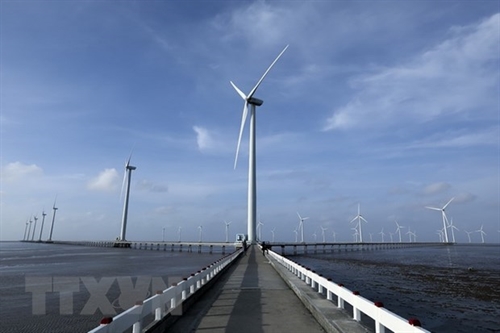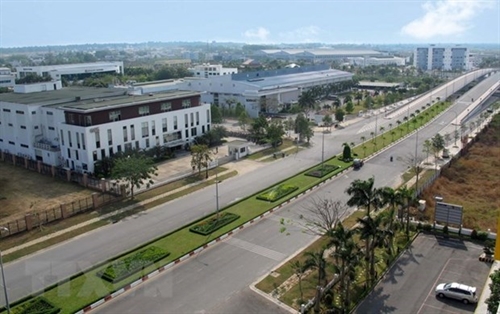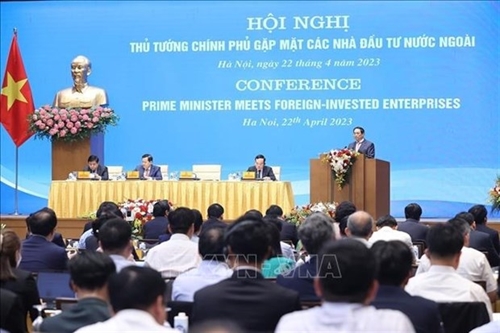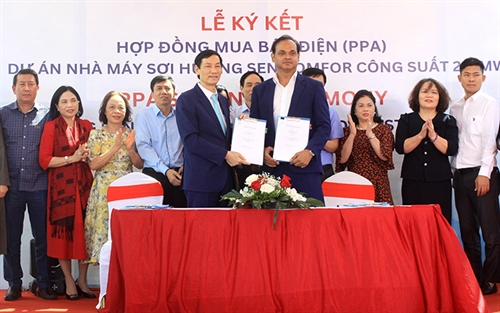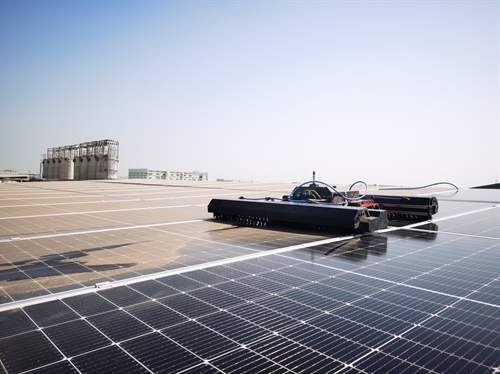In an attempt to remove obstacles facing the people and enterprises involved in real estate business for years, the Government on April 3 issued Decree 10, revising a number of articles of the Decrees guiding the implementation of the Land Law, pending the comprehensive revision of this Law.
Notable amendments and supplementations are those revising Decree 43 issued in 2014 (Decree 43) regarding grant of ownership certificates for non-residential buildings, the period during which force majeure events affect the land use progress of investment projects, and land repurposing for implementation of investment projects, etc.
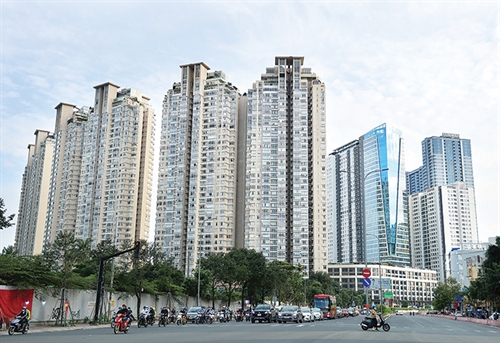 |
| Apartment buildings in Nguyen Huu Canh street, Binh Thanh district, Ho Chi Minh City__Photo: Hong Dat/VNA |
Grant of ownership certificates to “hybrid property”
As stated in Article 1.4 of Decree 10, which adds Clause 5 to Article 32 of Decree 43, ownership certificates will be granted for construction works used for tourism accommodation purposes on commercial and service land if such works fully satisfy the conditions specified by the land, construction and real estate business laws. This is expected to help remove the legal bottleneck in the trading of “hybrid property” such as condotels, officetels, resort villas, tourist apartments, etc.
Dr. Tran Viet Long, a lecturer from the College of Law, Hue University, said the new regulation has dealt with existing problems relating to grant of land use rights certificates for condotels. He explained that under the current land law, the State will decide to allocate or lease land for a definite term or long term depending on the categories of land, e.g., residential land and commercial and service land, which are classified based on land use purposes. The lecturer said the new rule has addressed the question whether the grant of land use rights certificates for condotels has to comply with the principles for grant of certificates of land use rights and ownership of houses and land-attached assets as specified in the Land Law.
Article 1.4 further states that the land use term must comply with the Land Law, which does not exceed 50 years, for land intended for commercial and service purposes. This term may be extended to 70 years in cases requiring a longer land use term as mentioned in Article 126.3 of the Land Law. Upon acquisition of land use rights, the land use term is the remainder of the land use term of the project before the acquisition as regulated in Article 128.1 of the Land Law.
Owners of the construction works are held responsible before law for whether they fully satisfy the requirements specified in the construction and real estate business laws, reads the new Decree.
As evaluated by Dr. Nguyen Van Dinh, Vice President of the Vietnam National Real Estate Association, the new rule has helped create a legal pathway for hundreds of resort projects in the country’s tourism centers like Quang Ninh, Da Nang, Nha Trang, and Phu Quoc, and lure more investment into the domestic resort real estate market, thereby turning tourism into a spearhead economic sector.
“However, there should be guiding documents which are specifically designed to handle violations during implementation,” Dinh added.
The newly issued Decree also revises Article 72 of Decree 43, providing for the criteria and conditions for grant of certificates of land use rights and ownership of houses and other land-attached assets for construction works other than houses.
Specifically, upon completion of a non-residential building, the project owner must send to the provincial-level Department of Natural Resources and Environment a certificate of land use rights and ownership of houses and other land-attached assets, and a documentary proof of the project owner’s fulfillment of financial obligations, unless the project owner is entitled to exemption or late payment under regulations.
Other required documents include the construction work’s design drawings; the specialized construction agency’s notice permitting the project owner to conduct acceptance test of the as-built construction work or approving the results of the as-built construction work’s acceptance test; and a list of assets, together with information about the name, land area, and area for common use and private use, of each asset.
Delegation of powers to grant certificates of land use rights and ownership of houses and other land-attached assets
The new regulation revises Article 37 of Decree 43 toward delegating more powers to land registration offices in localities for cases involving foreign elements in order to simplify administrative procedures for these entities.
Specifically, land registration offices in localities will grant, or certify changes of, certificates of land use rights and ownership of houses and other land-attached assets for organizations and religious institutions, overseas Vietnamese performing investment projects, foreign organizations and individuals, and foreign-invested enterprises. For localities where land registration offices are not available, provincial-level Departments of Natural Resources and Environment will grant the certificates.
Meanwhile, households, individuals, residential communities, and overseas Vietnamese entitled to own houses attached to residential land use rights in Vietnam may ask either land registration offices or branches of land registration offices to grant the certificates or certify changes of the certificates. For localities without land registration offices, district-level People’s Committees will grant the certificates.
Extension of land use term upon project termination in case of force majeure events
Decree 10 says that the period during which force majeure events affect the land use progress of investment projects will not be counted into the 24-month extended duration under Article 64.1.i of the Land Law and Article 15b added under Decree 01 of 2017.
According to the above-mentioned Article 15b, in case a project owner is allocated land by the State with land use levy payment or is leased land by the State with one-off rental payment for the entire lease term, it/he/she may continue using the land for 24 months from the date the project terminates its operation under the investment law. This is also applicable to project owners that are leased land by the State with annual rental payment.
During the 24-month period, the project owner may transfer the land use rights or sell their lawful assets attached to the leased land to another investor in accordance with law. Meanwhile, a project owner that is leased land by the State with annual rental payment may sell land-attached lawful assets to another investor in accordance with law. In this case, the State will recover the land from the project owner for lease to the asset buyer.
Upon the expiration of the 24-month term, if the project owner cannot sell their lawful assets attached to the leased land to another investor, the State will recover the land without paying compensation for land or land-attached assets.
Land repurposing for implementation of investment projects
Decree 10 adds Article 68a to Decree 43, allowing repurposing of land for rice farming, land for protection forests or land for special-use forests for implementation of investment projects.
To be permitted for land repurposing to implement its/his/her investment project, an project owner must satisfy the conditions and criteria below:
(i) The project has its investment policy approved or is granted an investment registration certificate under the investment law;
(ii) The project complies with the district-level land use master plan and is included in the approved district-level annual land use plan;
(iii) The project owner has a plan on planting of replacement forests or a document proving its/his/her fulfillment of the obligation to pay for the planting of replacement forests under the law on forestry, in case of repurposing of land for protection forests or land for special-use forests; or has a plan to use the surface land and a document proving its/his/her fulfillment of the obligation to pay for the protection and development of paddy land under the law on crop production, in case of repurposing of paddy land; and,
(iv) The project owner conducts preliminary environmental impact assessment or environmental impact assessment in accordance with the law on environmental protection (if any).
Worthy of note, agencies and persons competent to appraise and approve the policy on repurposing of land for protection forests, land for special-use forests or paddy land will be held responsible only for the contents specified at items (ii) and (iii) above. They will not bear responsibility for other contents previously appraised, accepted, decided, approved or settled by other authorities.-
